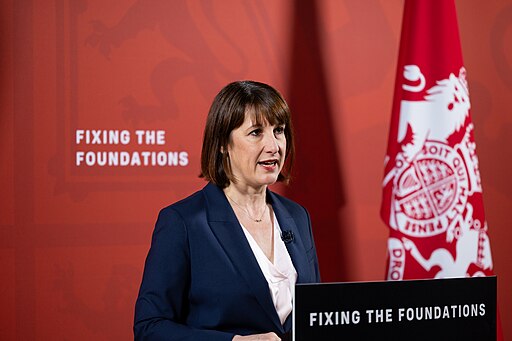As Labour prepares for its first budget in 14 years, all eyes are on Chancellor Rachel Reeves to deliver a plan that restores faith in the economy and public services
In just over a week, Rachel Reeves will step into the spotlight for a high-stakes budget announcement that has Labour Party insiders buzzing with apprehension. Scheduled for 30 October, this budget marks a pivotal moment for both the Chancellor and the government, as it is the first Labour budget since 2010. Described by various cabinet members as “massive” and “hugely important,” the implications of Reeves’ proposals extend far beyond the numbers.
Amidst whispers of “make or break,” the pressure is palpable. This budget aims to address three crucial challenges: first, to manage the daunting fiscal legacy left by the Conservatives; second, to rejuvenate the beleaguered public services; and third, to steer the nation towards a pathway of sustainable growth. “No pressure then,” one might quip, but the stakes are indeed high for Reeves as she readies herself for what could define her tenure.
Success in delivering a well-received budget could ease concerns surrounding the economy and lend the government a renewed sense of direction, particularly after recent turbulence stemming from controversies surrounding Downing Street. However, should the budget falter, the cracks that have begun to show could widen into a full-blown crisis. A Treasury insider candidly remarked, “Every budget comes with its risks, and this one is enormous.”
Embed from Getty ImagesThe lengthy lead-up to this moment has seen Reeves conducting a thorough audit of the financial landscape bequeathed by her predecessors. This scrutiny, coupled with negotiations between the Treasury and various spending ministers, has filled the political vacuum with speculation. The right-wing press has already begun to stir fears among affluent Britons, warning that Reeves may impose tax hikes beyond what Labour campaigned for. Meanwhile, the Conservatives are eager for an “I told you so” moment, ready to critique Labour for any signs of fiscal irresponsibility.
Yet, Reeves has a powerful counter-narrative at her disposal. With national debt levels soaring to heights unseen since the early 1960s and tax burdens at their most significant since the late 1940s, she can justifiably point to the mess left in the wake of Tory governance. While debates about the exact size of the fiscal “black hole” left by the Conservatives continue, it’s clear that the challenges are immense.
The spectres of former Prime Ministers Liz Truss and Kwasi Kwarteng loom large, as their ill-fated economic strategies remain fresh in the minds of market analysts and political commentators. With the bond market’s watchful eyes on her, Reeves must navigate a fine line between essential investments and the need to keep public borrowing within acceptable limits. A misstep could not only jeopardise her position but could also trigger a financial crisis reminiscent of recent tumultuous years.
Moreover, there’s growing discontent within the cabinet regarding budget allocations, as spending ministers express dissatisfaction over perceived inequities in funding. In recent days, letters of protest have surfaced, penned by key figures including Deputy Prime Minister Angela Rayner and Transport Secretary Lou Haigh, aimed at Prime Minister Keir Starmer, signalling unrest about the Treasury’s allocations.
Despite the challenges, not all news is bleak. Observers expect Reeves to allocate additional funding towards critical areas such as the NHS, which has been under severe strain, using these investments to justify any necessary tax increases. Yet, dissenting voices within the Labour ranks remain concerned about the lack of support for departments outside the health sector.
Backbenchers within the Labour Party are also apprehensive as they anticipate the budget’s reception from the electorate. Few Labour members entered politics with a singular focus on fiscal discipline; their motivations are rooted in a desire to uplift disadvantaged communities and enhance public services. They will measure Reeves’ success based on her ability to fulfil these objectives, especially in light of the backlash over recent policy proposals such as means-testing winter fuel payments for pensioners.
The upcoming budget serves a dual purpose: addressing immediate fiscal responsibilities while appealing to the electorate. The decline in Labour’s approval ratings since the summer has heightened anxieties, leading many MPs to advocate for a few populist measures to soften the blow. However, there’s a counterargument suggesting that now is the opportune moment for hard choices, as memories of Tory mismanagement remain vivid in voters’ minds.
Reeves’ team is framing the budget as a “wiping the slate clean” moment, anticipating up to £40 billion in tax increases and spending cuts. They seek to draw parallels with previous austerity budgets, notably those implemented by George Osborne. However, such comparisons may not alleviate the growing unease among Labour’s ranks.
Ultimately, Reeves finds herself in a no-win scenario; there will be no budget that pleases everyone. Instead, her focus must be on gaining respect for her willingness to tackle difficult decisions that could fortify Britain’s economic future. As concerns grow among her colleagues that the budget may alienate constituents rather than satisfy them, it becomes clear that this could indeed be a defining moment for Rachel Reeves and the Labour government.
